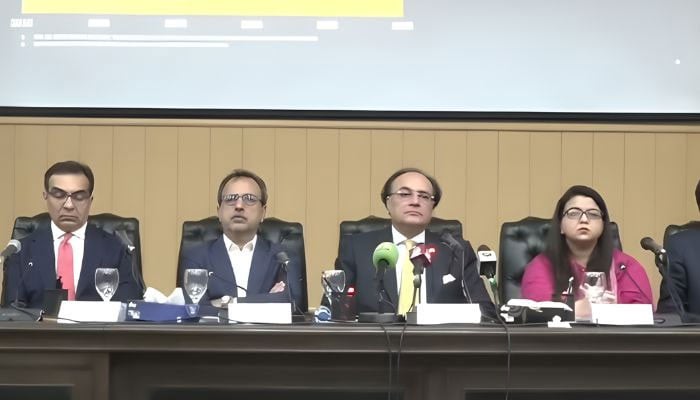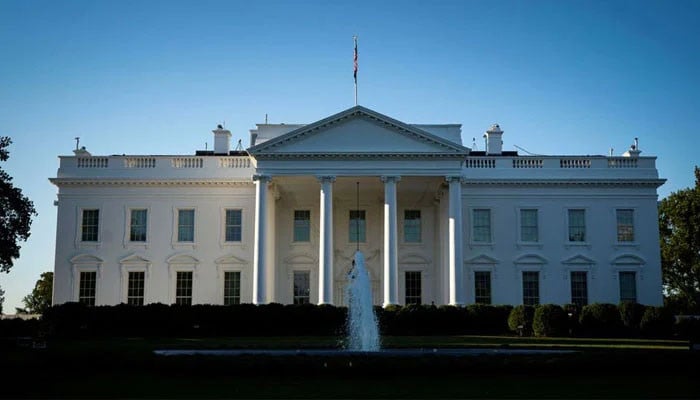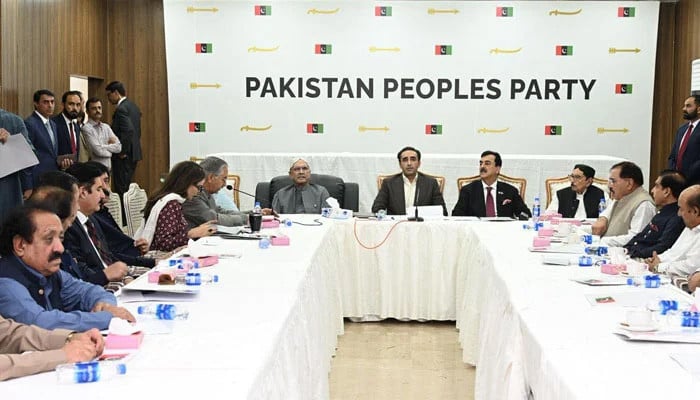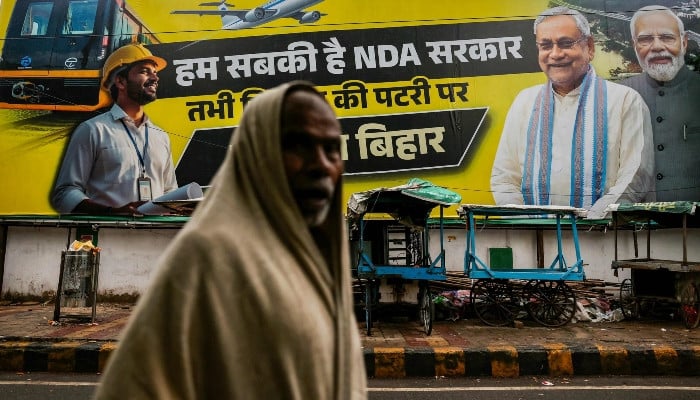
Finance Minister Muhammad Aurangzeb (second right) addresses a presser in Islamabad on November 3, 2025. — Screengrab Geo News
#FinMin #economy #moving #direction #visible #progress
ISLAMABAD: Finance Minister Muhammad Aurangzeb on Monday said that Pakistan’s economy is on a positive trajectory, stressing that the government’s main objective was to achieve long-term, sustainable stability.
Addressing a press conference alongside the government’s economic team, Aurangzeb said the government had made “remarkable progress” to achieve economic stability, noting that the recent staff-level agreement with the International Monetary Fund (IMF) reaffirmed Pakistan’s ongoing economic recovery efforts.
He said that the main objective of the government is to ensure sustainable economic stability through structural reforms. “Fundamental reforms in the tax system, energy sector and other key sectors are essential for long-term growth,” the minister said.
The Finance Minister said that pension reforms and right-size fundamental reforms are also part of the plan. He reiterated the government’s commitment to implement its reform agenda to stabilize the economy and maintain fiscal discipline.
Aurangzeb added that three global rating agencies have confirmed Pakistan’s economic stability. He also thanked the Gulf Cooperation Council, China and the US for helping Pakistan.
Federal Board of Revenue (FBR) Chairman Rashid Langreal said that Pakistan’s tax-to-GDP ratio has increased by 1.5 percent for the first time. He said the filing rate of individual income tax returns also increased this year, with the number of taxpayers increasing to 5.9 million.
He said that there has been an 18 percent jump in income tax filing compared to last year.
The FBR chairman said the government aims to increase its tax-to-GDP ratio to 18 percent in the coming years, adding that comprehensive tax reforms cannot be achieved in a single year.
He said that there is no urgent need to impose new taxes by the FBR, instead emphasizing the importance of broadening the tax base to improve tax compliance and stabilize revenue collection.
Energy Minister Avis Legari said that the government is organizing the energy sector on modern lines and every possible effort has been made to provide relief to the public wherever the opportunity arises.
He said that in the last 18 months, electricity price was reduced by 10.5 percent, EV rate was reduced from Rs 71 to Rs 39, and technical issues were resolved in the energy sector achieving savings of billions of rupees.
He added that the Task Force on Independent Power Producers (IPPS) has done remarkable work, reducing the circular debt by Rs 700 billion in a year, and a loan agreement of Rs 1,200 billion was signed to reduce the circular debt.
Legari said the government will no longer purchase electricity, introducing auto-metering with prepaid options for consumers, and the entire electricity system will be on auto-metering in the next three years.
Adviser to the Prime Minister on Privatization Muhammad Ali said that the government is ensuring transparency in the privatization process and enhancing the capacity of the Privatization Commission. He said the pace of privatization process would accelerate in the coming period, noting that First Women Bank was sold for Rs 5 billion.
He added that the UAE company which bought First Women Bank has now entered Pakistan. On the national airline, he said the first phase of the transaction may not be completed, and there are now four consortia to privatize the national airline.
He said that the groups coming forward for privatization have extensive experience, and efforts are being made to complete the privatization of the national airline before the end of the year.
He added that the aim is to acquire the national airline to a business group that will invest heavily in it. He said that financiers are engaged, the government is determined to achieve its privatization targets, and the process of privatization of DISCOs has started with ISCO, LESCO and FESCO.




